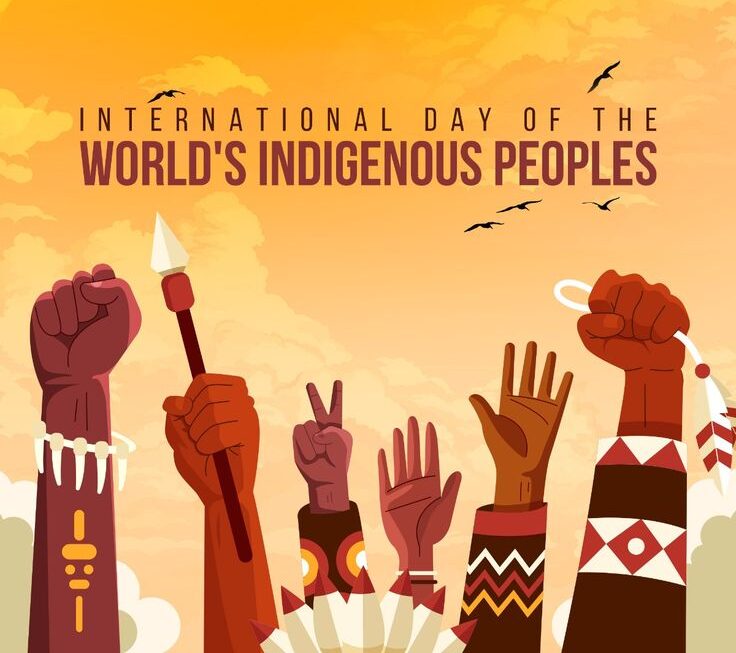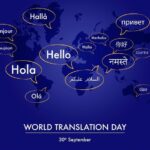International Day of the World Indigenous Peoples: Honoring Culture, Rights, and Heritage
Introduction: International Day of the World Indigenous Peoples
Every year on August 9, the world observes International Day of the World Indigenous Peoples, a day dedicated to honoring the rights, cultures, and contributions of Indigenous communities around the world. The United Nations established this day in 1994 to bring attention to the unique struggles and challenges Indigenous peoples face, as well as to celebrate their heritage, resilience, and valuable traditions. This day serves as a reminder of the importance of preserving Indigenous knowledge, supporting their rights, and respecting their diverse cultures.
History of International Day of the World Indigenous Peoples
The history of International Day of the World’s Indigenous Peoples goes back to the early 1990s when the United Nations (UN) recognized the need for global awareness about the issues faced by Indigenous peoples. The UN declared August 9 as the official date for this observance, following the first meeting of the Working Group on Indigenous Populations held in Geneva in 1982.
In 2007, the UN adopted the Declaration on the Rights of Indigenous Peoples, which established international standards for the protection and promotion of Indigenous rights. This declaration emphasized the importance of self-determination, cultural preservation, and respect for Indigenous governance systems. On this basis, International Day of the World’s Indigenous Peoples continues to serve as a global platform to educate and raise awareness about Indigenous peoples’ rights, as well as their ongoing struggles.
Key Facts About International Day of the World Indigenous Peoples
- A Global Observance: International Day of the World’s Indigenous Peoples is celebrated worldwide, from remote Indigenous communities to bustling urban centers. It’s a day to recognize the voices of Indigenous peoples and highlight the importance of cultural diversity.
- Celebrating Indigenous Cultures: The day is not only about acknowledging the struggles faced by Indigenous peoples but also celebrating their vibrant cultures, traditions, languages, and art forms that have survived through centuries.
- UN Theme Each Year: Each year, the UN focuses on a specific theme for International Day of the World’s Indigenous Peoples. These themes cover topics like Indigenous youth, land rights, environmental sustainability, and human rights.
- Indigenous Knowledge and Sustainable Practices: Indigenous communities possess a deep understanding of sustainable practices, including environmental conservation, agriculture, and biodiversity. This knowledge is valuable for addressing global challenges such as climate change and resource management.
- Promoting Indigenous Rights: The observance encourages governments, organizations, and individuals to take action to support the rights of Indigenous peoples, including land ownership, cultural preservation, access to healthcare, and self-determination.
Significance of International Day of the World Indigenous Peoples
- Acknowledging Struggles and Rights: Indigenous peoples have faced historical injustice, displacement, and marginalization. International Day of the World’s Indigenous Peoples provides an opportunity to address these issues and ensure that Indigenous communities are granted their fundamental rights.
- Protecting Cultural Heritage: Indigenous communities have rich cultural traditions, languages, and practices that are often at risk of disappearing. This day serves to celebrate and protect these valuable elements of cultural heritage, which contribute to the richness and diversity of the global community.
- Fostering Inclusivity and Equality: International Day of the World’s Indigenous Peoples reminds us of the importance of inclusivity in all aspects of society. It advocates for equal rights and opportunities for Indigenous peoples and the recognition of their autonomy and governance systems.
- Empowering Indigenous Youth: One of the key focuses of International Day is the empowerment of Indigenous youth. These young people are the future of their communities, and supporting their education, leadership, and participation is crucial for preserving Indigenous cultures and ensuring their rights are upheld.
- Advancing Environmental Sustainability: Indigenous peoples have long been stewards of the environment, relying on sustainable practices passed down through generations. Their knowledge of ecosystems, biodiversity, and sustainable resource management is crucial for addressing the challenges of climate change and environmental degradation.
How to Observe International Day of the World Indigenous Peoples
- Educate Yourself and Others: Take the time to learn about the history, culture, and rights of Indigenous peoples. Share this knowledge with others to raise awareness about the importance of preserving Indigenous cultures and protecting their rights.
- Support Indigenous Organizations: Contribute to organizations that work on behalf of Indigenous communities. These groups advocate for Indigenous rights, promote cultural preservation, and support economic and educational initiatives.
- Attend Local Celebrations: Many cities and communities hold events to mark International Day of the World’s Indigenous Peoples. These may include cultural performances, educational talks, film screenings, or exhibitions showcasing Indigenous art, crafts, and history.
- Respect Indigenous Land Rights: One of the central issues for many Indigenous communities is land rights. Support initiatives that help protect Indigenous land and resources, and advocate for fair and just policies regarding land ownership and environmental conservation.
- Promote Indigenous Languages: Indigenous languages are a key part of cultural heritage and identity. Support efforts to preserve and revitalize Indigenous languages by attending language workshops, supporting educational programs, or learning an Indigenous language yourself.
Important Points About International Day of the World Indigenous Peoples
- A Day of Reflection and Action: International Day of the World’s Indigenous Peoples is not only a day for reflection but also a call to action. It encourages governments, organizations, and individuals to take tangible steps toward protecting the rights of Indigenous peoples.
- A Celebration of Resilience: The day honors the resilience and strength of Indigenous communities who have faced adversity for generations but continue to thrive and preserve their cultures.
- Global Solidarity: The observance of International Day of the World’s Indigenous Peoples is an expression of global solidarity with Indigenous peoples. It highlights the need for unity and collaboration across countries and cultures to ensure that Indigenous peoples are treated with dignity and respect.
FAQs About International Day of the World Indigenous Peoples
1. Why is August 9 chosen as International Day of the World’s Indigenous Peoples?
August 9 was chosen to commemorate the first meeting of the Working Group on Indigenous Populations at the UN in 1982. It is a symbolic date for recognizing the importance of Indigenous rights.
2. How can I support Indigenous communities on this day?
You can support Indigenous communities by educating yourself about their cultures and issues, donating to Indigenous rights organizations, participating in local events, and advocating for policies that protect their rights.
3. What is the theme for this year’s International Day of the World’s Indigenous Peoples?
The theme for each year is chosen by the United Nations and typically focuses on a relevant issue affecting Indigenous peoples, such as land rights, environmental conservation, or youth empowerment.
Conclusion: International Day of the World Indigenous Peoples
International Day of the World Indigenous Peoples is a day to celebrate the richness and diversity of Indigenous cultures while also addressing the challenges they face. By honoring their heritage, supporting their rights, and promoting global solidarity, we can ensure that Indigenous peoples continue to thrive and contribute to a more sustainable and just world. This day encourages us all to respect and learn from the knowledge, wisdom, and traditions of Indigenous communities, recognizing their integral role in shaping a better future.










